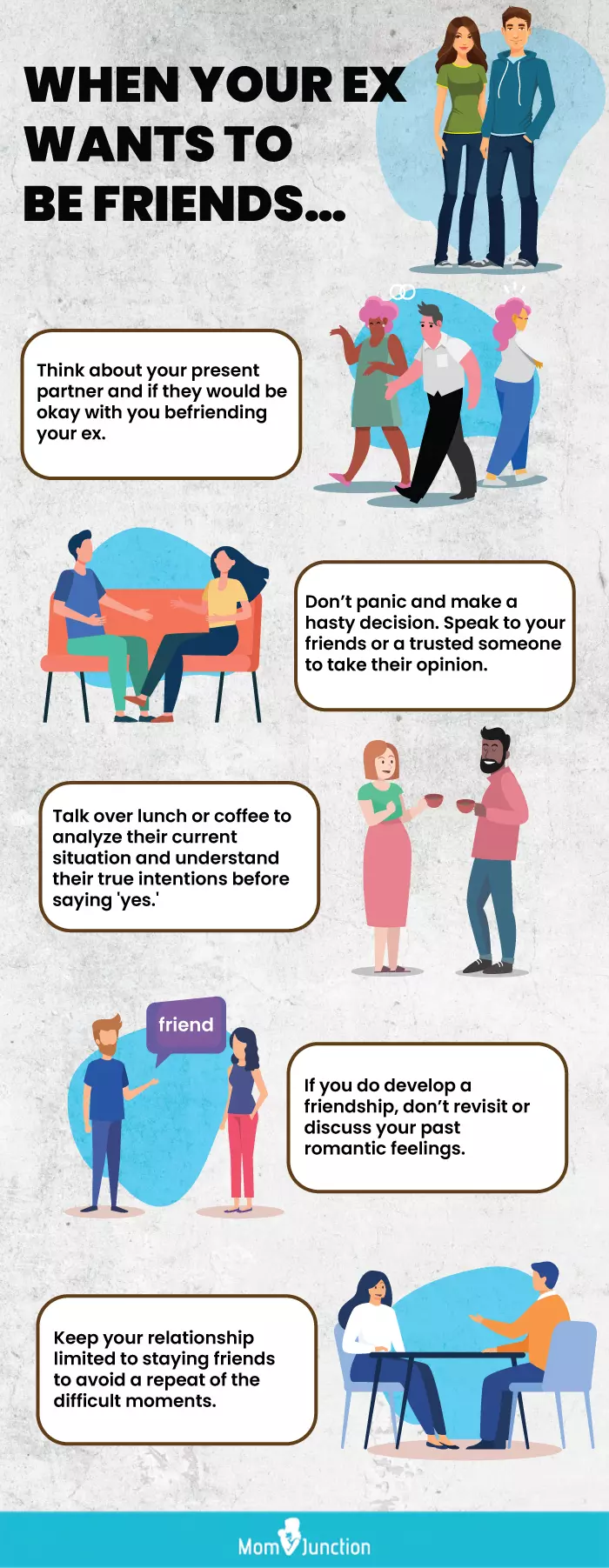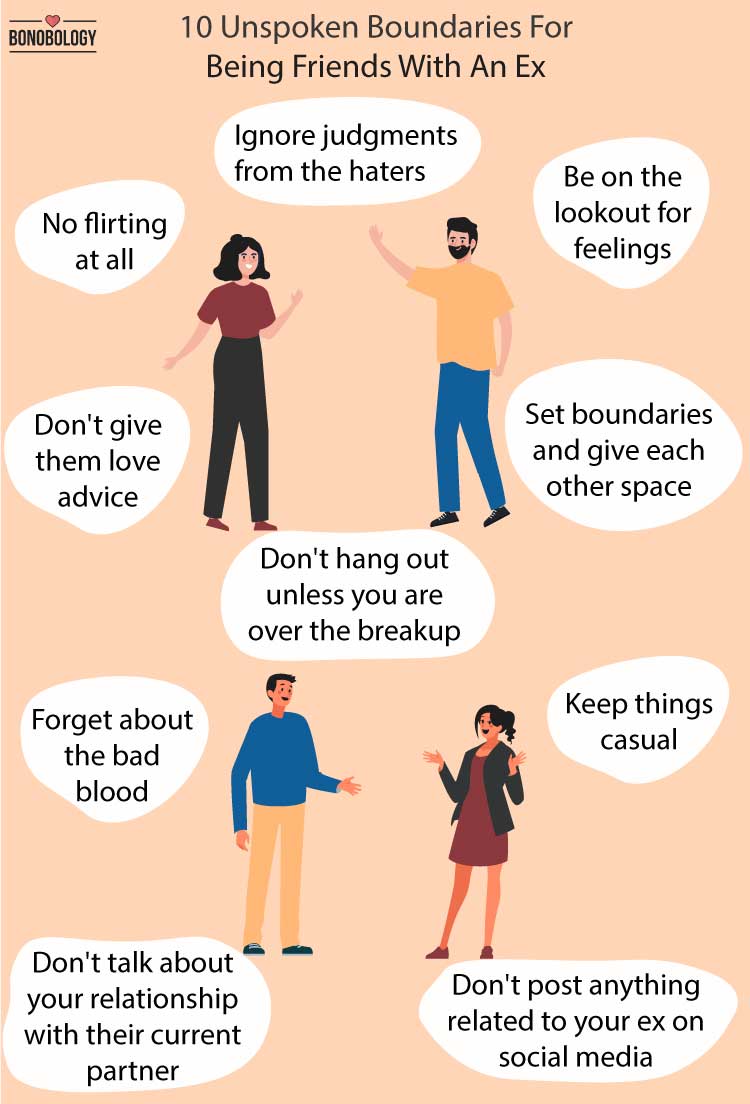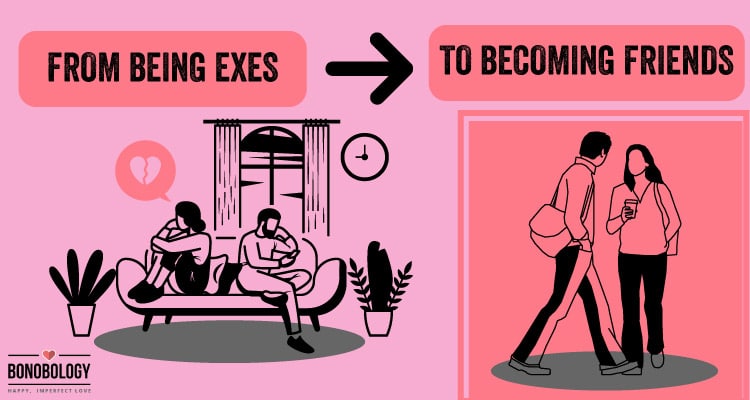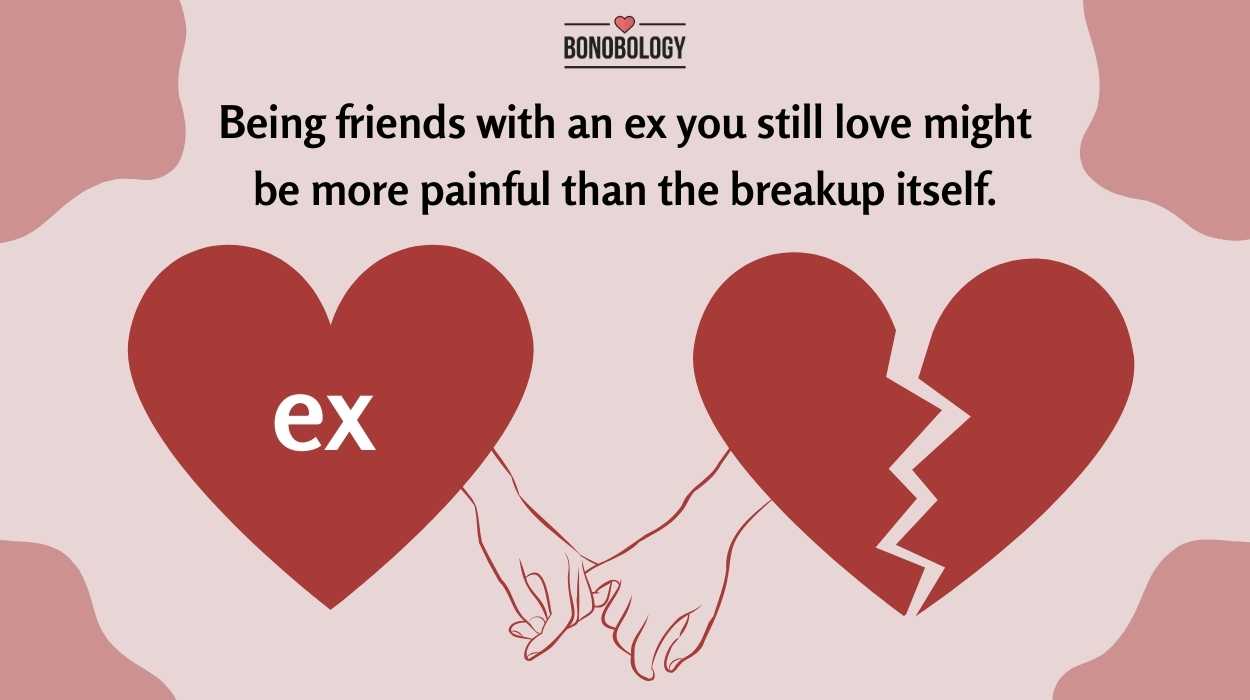
Understanding the Dynamics of Friendship with an Ex
Defining the Relationship
Navigating a friendship with an ex-partner can be complex. It’s essential to define what the friendship entails. Are both individuals looking to support each other, or is there an underlying hope of rekindling romance? Key points to consider include:
- Clarifying intentions: Understanding why each person wants to maintain the friendship.
- Mutual respect: Acknowledging each other’s boundaries and feelings.
- Shared history: Recognizing the unique bond formed during the relationship.
Emotional Considerations
Emotions play a significant role in friendships with exes. It’s natural to feel a mix of nostalgia and discomfort.
- Revisiting old feelings: Be aware of challenges that may arise as past connections can resurface.
- Healing process: Consider how each person is coping with the breakup; sensitivity is crucial.
- Openness: Discuss feelings when appropriate to foster a healthy friendship.
Ultimately, understanding these dynamics sets the stage for a stable and supportive friendship moving forward.

Pros and Cons of Maintaining a Friendship
Benefits of Staying Friends
Choosing to remain friends with an ex can have several advantages. For example, if both individuals enjoyed a strong friendship before dating, it might be worth preserving. Benefits include:
- Familiarity and comfort: Having someone who knows your story can provide emotional support.
- Shared social circles: Maintaining connections can make group outings more enjoyable.
- Growth opportunities: A friendship can foster personal growth as both parties learn from their past.
Challenges and Risks to Consider
However, maintaining this friendship isn’t without its challenges. It’s vital to recognize potential risks, such as:
- Lingering feelings: One person might struggle to move on, causing emotional strain.
- Jealousy: Future romances could lead to feelings of envy or discomfort.
- Complicated dynamics: Changes in the friendship can create awkward moments, particularly around new partners.
Being aware of these pros and cons will help individuals navigate their decision more effectively.

Setting Boundaries and Communication
Establishing Clear Guidelines
Once the decision to remain friends is made, establishing clear guidelines becomes essential. This helps both parties navigate their new relationship without confusion. Consider the following:
- Discuss what’s off-limits: Determine topics or activities that may be too sensitive, such as discussing new relationships.
- Set expectations around communication: Agree on how often you’ll stay in touch—daily, weekly, or as needed.
- Check-in regularly: Periodic discussions about the friendship’s status can help ensure both parties feel comfortable.
Effective Communication Strategies
Open communication is key to successfully maintaining a friendship with an ex. Some strategies to consider include:
- Active listening: Taking the time to understand each other’s feelings fosters trust.
- Being honest but kind: Share thoughts openly, but choose words carefully to avoid unnecessary hurt.
- Non-verbal cues: Pay attention to body language, as it can reveal emotions that words might not express.
Implementing these strategies can create a supportive environment, allowing both individuals to enjoy their friendship while navigating complexities.

Personal Reflection and Decision Making
Self-Reflection on Intentions
Before proceeding with a friendship with an ex, it’s crucial to engage in some self-reflection regarding intentions. Ask yourself:
- What do I hope to gain? Clarifying your goals can prevent misunderstandings.
- Am I truly over the relationship? Honesty is key—if feelings linger, it may complicate the friendship.
- How will this affect my emotional health? Consider whether this connection will bring joy or additional pain.
Evaluating the Relationship Dynamics
Once intentions are clear, evaluating the relationship dynamics is the next step. Think about:
- Patterns from the past: Are there recurring issues that might resurface?
- Supportive versus toxic behavior: Assess whether the friendship provides positivity or negativity.
- Mutual growth: Determine if both parties are willing to support each other’s personal growth.
Through thoughtful reflection and evaluation, individuals can make more informed decisions about maintaining a friendship with an ex.

Navigating New Relationships and Prioritizing Self-Care
Impact on New Partnerships
When entering new relationships after an ex, it’s essential to acknowledge how past experiences can shape current dynamics. The friendship with an ex may impact new partnerships in various ways:
- Jealousy and insecurity: A new partner might feel uneasy about the friendship, leading to jealousy.
- Comparison: It’s easy to inadvertently compare a new partner’s qualities to those of an ex.
- Communication transparency: Openly discussing boundaries can help ease concerns and build trust.
Practicing Self-Care and Emotional Well-Being
Prioritizing self-care is vital while navigating new relationships. Here are some strategies:
- Emotional check-ins: Regularly assess your feelings to ensure you’re processing any lingering emotions from past relationships.
- Engage in hobbies: Pursuing passions can help boost self-esteem and foster well-being.
- Seek support: Reach out to friends or a therapist for guidance during transitions.
By consciously managing the impact of past relationships and committing to self-care, individuals can create healthier, more fulfilling new connections.

When to Consider Ending the Friendship
Signs that the Friendship is Unhealthy
Sometimes, maintaining a friendship with an ex may not be in the best interest of either party. Look for these signs indicating that the friendship is unhealthy:
- Constant emotional turmoil: If interactions often lead to arguments or hurt feelings, it may be time to reassess.
- Jealousy and resentment: Persistent feelings of envy or unresolved grudges can create a toxic environment.
- Inability to celebrate achievements: If you find it challenging to be genuinely happy for your ex’s successes, this could signal deeper issues.
Importance of Closure and Moving Forward
Recognizing the need to end a friendship can be tough, but closure is critical for personal growth. Consider:
- Reflecting on lessons learned: Every friendship offers insights; take time to process what you’ve gained.
- Communicating clearly: If you decide to end the friendship, do so respectfully and honestly.
- Making space for new relationships: By letting go, you create room for healthier connections that enhance your life.
Ending a friendship that no longer serves your emotional well-being allows for healing and growth, paving the way for a brighter future.
